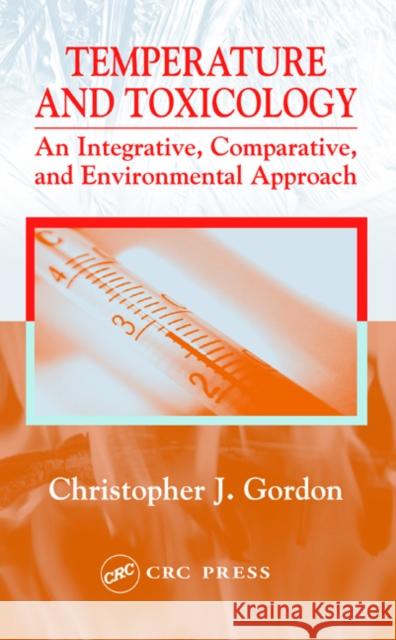Temperature and Toxicology: An Integrative, Comparative, and Environmental Approach » książka
Temperature and Toxicology: An Integrative, Comparative, and Environmental Approach
ISBN-13: 9780849330247 / Angielski / Twarda / 2005 / 338 str.
Thermoregulation is vital for survival but the interplay between toxic insults and thermoregulatory mechanisms is often poorly understood. Temperature and Toxicology: An Integrative, Comparative, and Environmental Approach is the first major text to study the integrative thermoregulatory responses of mammals that are exposed to toxicants. Because environmental physiology is also crucial in toxicological responses, this volume also examines the role of environmental temperature in the modulation of cellular mechanisms of toxicity.The book begins by explaining the importance of temperature in toxicological studies, and how all biological processes are dependent on temperature. It then reviews the basics of temperature regulation in homeotherms and poikilotherms, and addresses whole-animal and in vitro studies related to the effects of temperature on toxicity. The text examines thermoregulatory response to toxic insult, and how responses affect recovery and potential survival. reactions in humans, and discusses the relevance of heat and cold stress on human exposures to airborne pollutants and other toxicants. This volume provides an extensive comparison of physiological responses of invertebrates, fish, amphibians, and mammals, and focuses on the impact of endocrine disruption. It then considers how toxicants and thermal stress cause the expression of stress proteins, followed by a study of the impact of genetic variability. The book concludes with an examination of thermoregulatory response to natural toxins and venoms.FeaturesExplores how human health and susceptibility to toxicants can be strongly linked to environmental temperatureProvides more than 100 figures and 500 references that illustrate mechanisms though which toxicants affect various speciesInvestigates integrative thermoregulatory responses to toxicants, including effects on behavior and motor outputs











